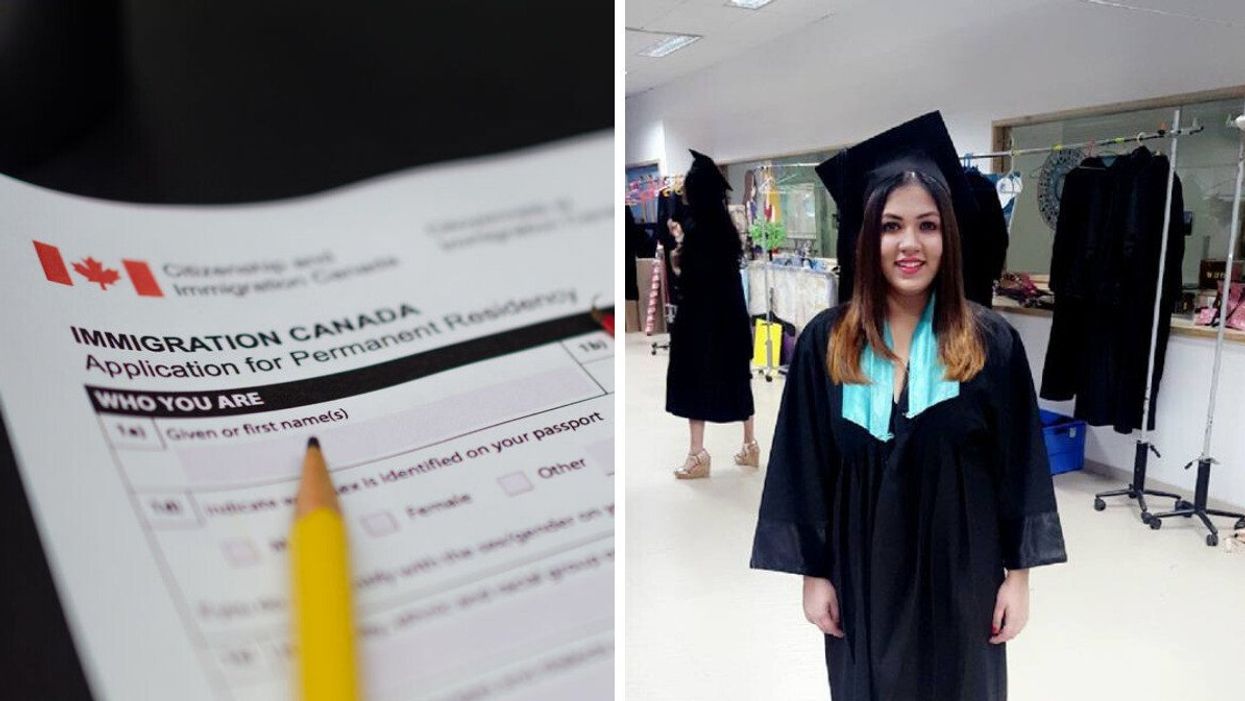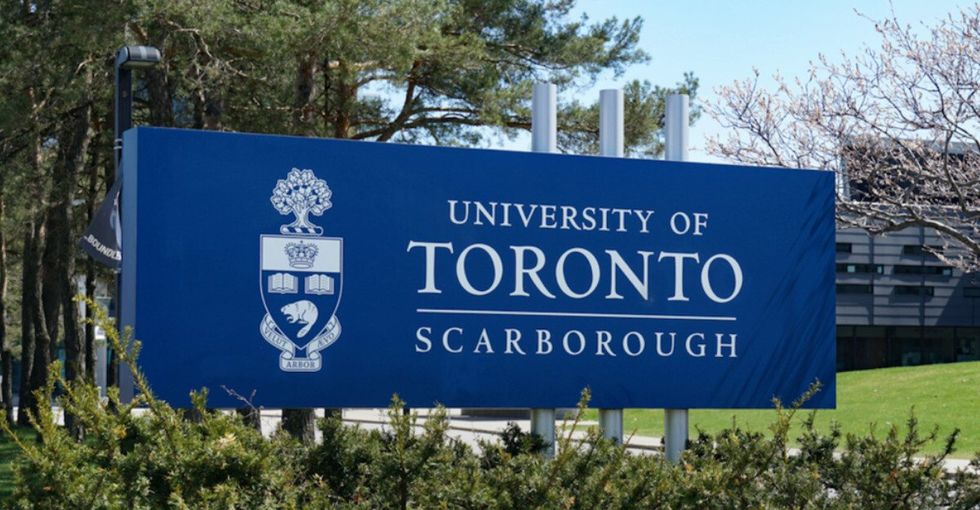5 Things I Wish I Knew Before I Applied To Become A Permanent Resident In Canada
The costs really catch up with you!

IRCC application form. Right: Rhythm Sachdeva at her high-school graduation.
This Essay article is part of a Narcity Media series. The views expressed are the author's own and do not necessarily reflect the views of Narcity Media.
While many people may aspire to become permanent residents of Canada, the journey isn't always a breeze.
I was once an international student in Canada, and after getting my degree, I now work as a young professional in Toronto. Thankfully, I qualified for the Express Entry program with Immigration, Refugees and Citizenship Canada (IRCC).
Here's how it works: you create an online profile and get ranked using the Comprehensive Ranking System (CRS) score. They consider things like your age, language skills, education, work experience, and more to calculate your score.
As someone currently going through the process, there are five things I wish I knew before I applied to become a permanent resident in Canada.
The costs really add up

Canadian currency and access cards.
Compared to the quick and affordable process of getting a work or study permit in Canada, the path to permanent residency turned out to be a huge expense for me and my family. I was completely caught off guard.
The application fee alone is $1,325, and that's not including the extra costs for things like biometrics, police certificates, proof of education, medical exams, and language tests. Altogether, it's about $2,500 if you do it all yourself.
I also hired an immigration lawyer to help me out, for which I've already shelled out almost $3,000.
Eligibility is no guarantee
If you're a worker or recent graduate looking to apply for permanent residency in Canada, you need to meet specific criteria. Factors like age, degree, and work experience are considered to create a score that the IRCC uses to determine your eligibility.
Since I'm on the younger side and have a bachelor's degree from a Canadian university, I only needed one year of full-time work experience to technically qualify. Seemed simple enough, right?
Wrong. As it turns out, this was just the bare minimum. After a year, my score was still so low and the IRCC wasn't accepting applicants with scores under a certain threshold.
It wasn't until I completed two years of work experience that my score went up enough to finally receive an Invitation To Apply (ITA). When I finally got one, it felt like my name had been chosen from the Goblet of Fire.
Being invited to apply is only the first step

People waiting outside a BLS Centre in Toronto.
When I felt finally received my Invitation to Apply (ITA), it felt like a huge win. But little did I know, it was just the beginning of another battle.
After the IRCC selects you, you must submit additional documents depending on where you're from. For me, that meant getting a police clearance certificate (PCC) from India to show that I have no criminal record.
The problem was every appointment for PCCs was booked up for the next six months, and I had only two months to submit all my paperwork. I had no choice but to take a chance and try a walk-in session.
I stood in line outside the office for six hours in the middle of a winter snowstorm.
It was a real test of endurance, but it was also eye-opening to see how many people were in the same boat as me and how complicated and time-consuming the process of gathering documents can be.
I needed so much help
The journey to permanent residency in Canada has been one of the most stressful and emotional experiences of my life. I couldn't have made it through without the support of my friends, family, and partner.
They've been there for me every step of the way, from watching me spend hours on my laptop uploading documents to comforting me when I cried about the long waiting times. Even doing a little extra research to help me out meant so much.
Having people in my corner has been absolutely crucial.
A contingency plan is so important

A University of Toronto, Scarborough sign.
I've spoken to many international students and foreign workers who are in the same position as me, and it's become clear that with the enormous backlog that the IRCC is facing, there's always a risk of not receiving an ITA in time before your work permit expires.
I personally had to consider a variety of contingency plans, from pursuing a master's degree to extending my work permit, before I finally received my ITA.
- 6 Hacks That Helped Me Build A New Life As An Immigrant In Canada - Narcity ›
- 5 Mistakes I Made On My Path To Become A Permanent Resident In Canada & What You Should Know - Narcity ›
- 6 Reasons Why I'm Applying For Permanent Residency In Canada Instead Of Returning To The UK - Narcity ›
- Immigrating To Canada Can Be Expensive & Newcomers Should Know About These Costs - Narcity ›
- These Are The 6 Things I Loved Most About Moving To Canada As A Permanent Resident - Narcity ›